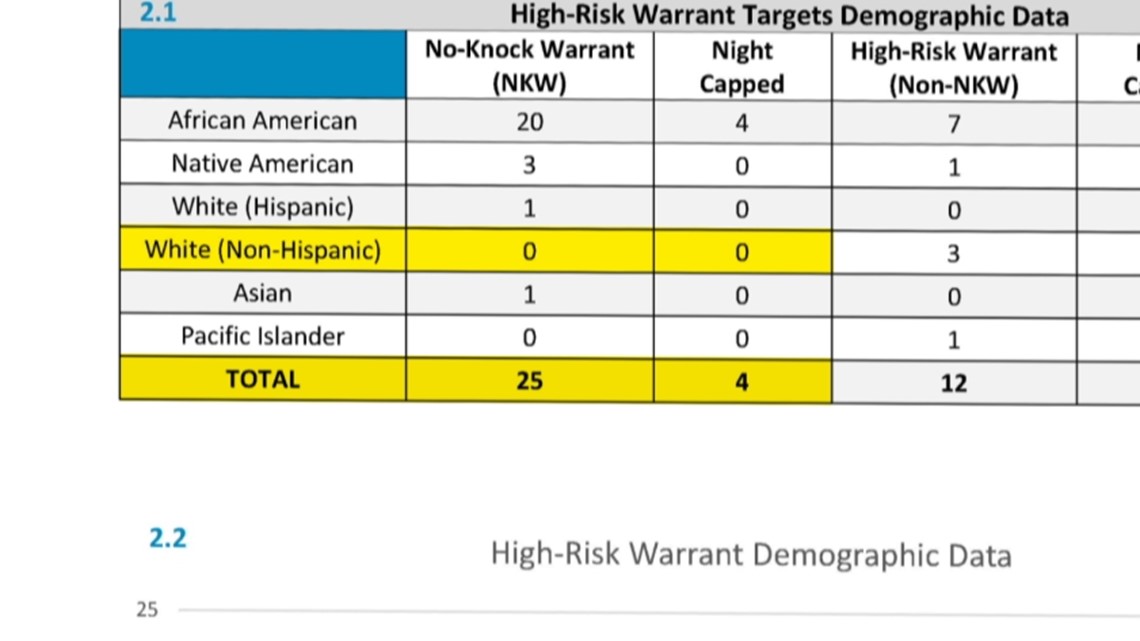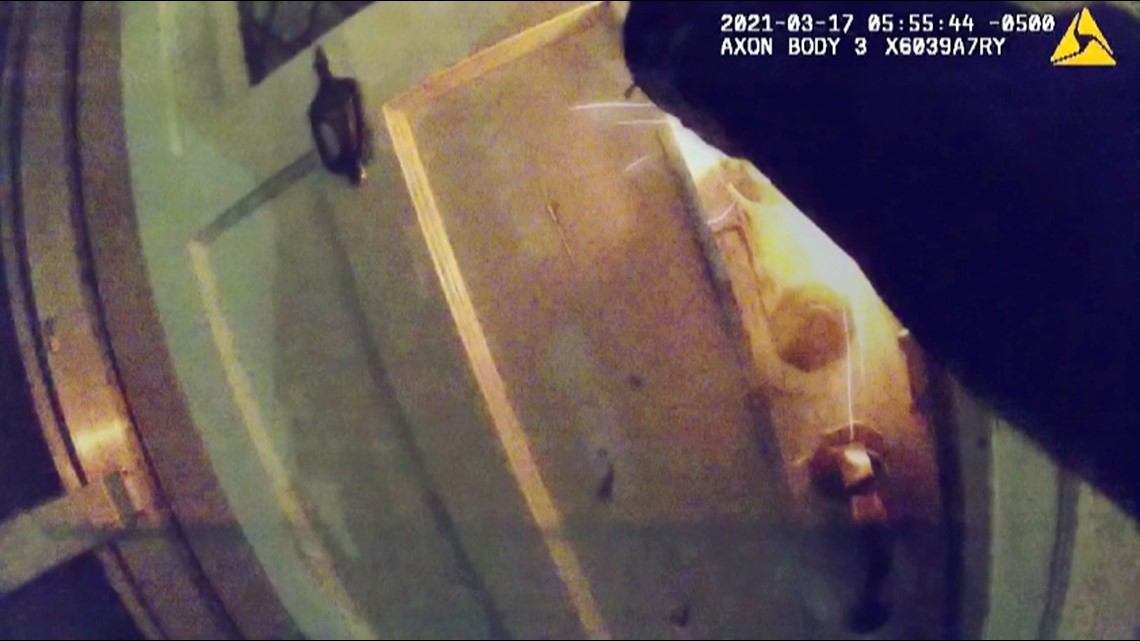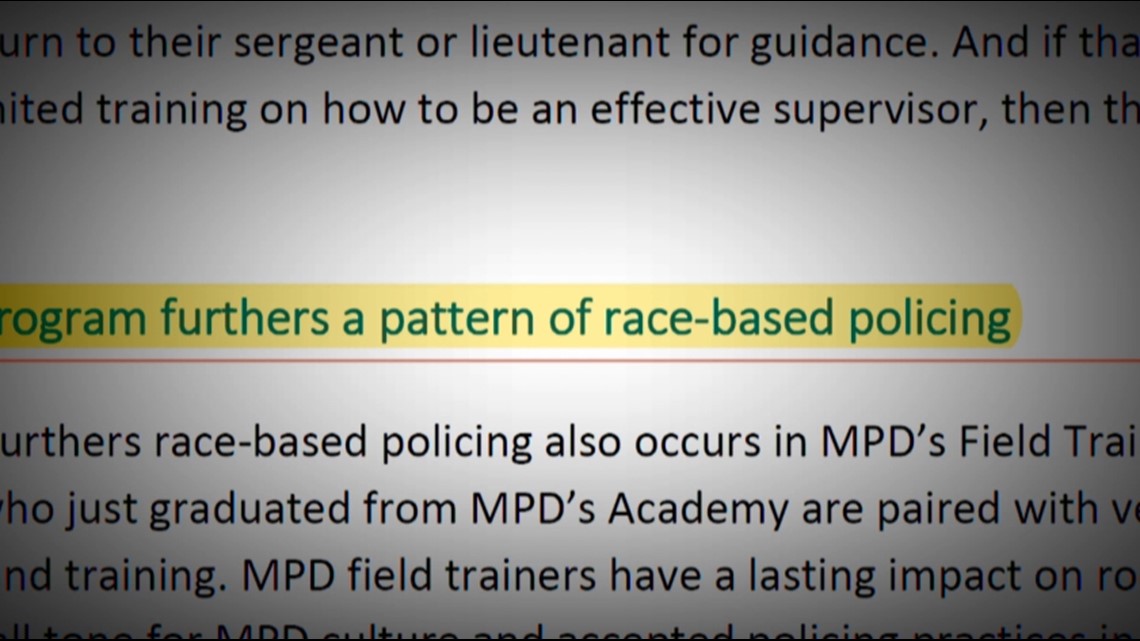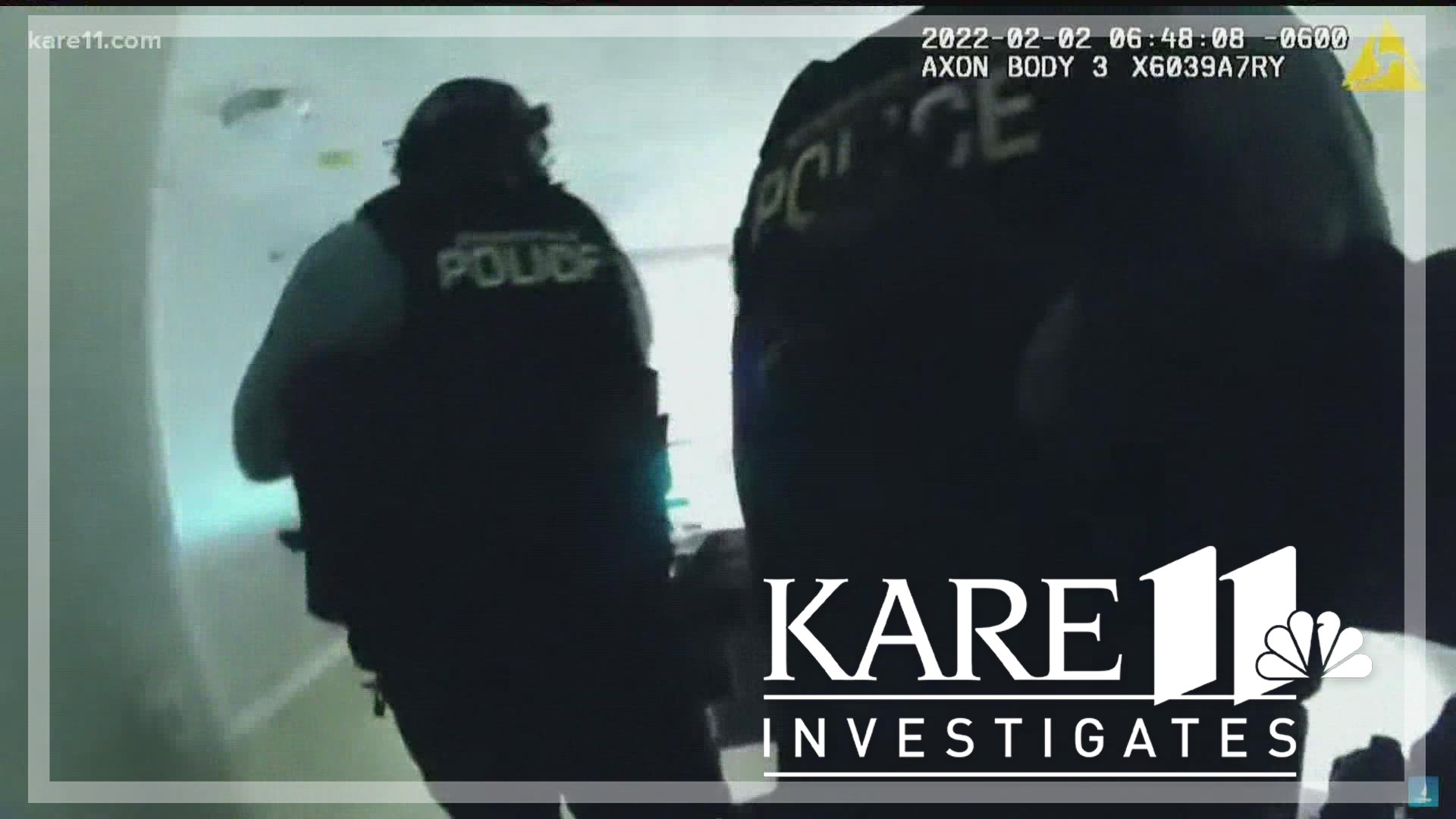MINNEAPOLIS — A city review of no-knock warrants for five months – from Sept. 1, 2021, though January 31, 2022 – reveals striking racial disparities.
The staff of the Minneapolis Civil Rights Office of Police Conduct Review found that the “target” of all 29 no-knock Warrants executed by Minneapolis police during that period was a person of color.
City data shows 24 African Americans, three Native Americans, one Hispanic and one Asian American were targets of the raids.
None of the no-knock warrants targeted whites.
The city’s Civil Rights Office launched its review two days after the highly publicized police raid that resulted in the fatal shooting of Amir Locke. It concluded that high-risk warrants “disproportionately impact African Americans.”


The new data echoes the findings released this week by the Minnesota Department of Human Rights that MPD has engaged in a pattern of race-based policing.
Early this month, Mayor Jacob Frey enacted a new policy officially prohibiting MPD from executing no-knock search warrants in all but emergency situations.
Prior raids
Prior KARE 11 investigations have raised questions about when and how Minneapolis police have decided to request the controversial warrants.
After Amir Locke’s death, KARE 11 reported that St. Paul police did not originally request a no-knock warrant and by policy does not use them, but Minneapolis police refused to execute it unless it was changed.
KARE 11 also reported how MPD had used a no-knock warrant to blast their way into a Black resident’s home with a breaching shotgun.
The reason? To investigate a stolen puppy.


The rounds they fired through the door frame put holes in a couch where children regularly sleep.
In another case targeting a young Black man, KARE 11 revealed how Minneapolis police failed to do basic due diligence to confirm where he lived.
The early morning no-knock SWAT raid was served at the wrong address – terrifying the innocent family inside.
An internal affairs investigation was launched in response to KARE 11’s report on the wrong address raid. It’s been more than a year and that investigation has not been completed.


That mirrors a finding from the Minnesota Department of Human Rights that police misconduct complaints are inadequately investigated and MPD routinely fails to discipline officers in a timely manner.
The Civil Rights Office of Police Conduct Review has not yet released its final report on high-risk warrants but says in addition to racial disparities it has identified potential issues regarding equipment and tactics that will be the focus of further review.

